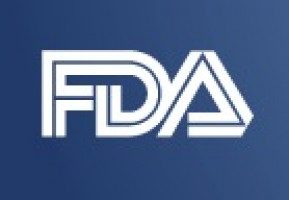
On September 17, 2024, the Food and Drug Administration approved ribociclib with an aromatase inhibitor for the adjuvant treatment of adults with hormone receptor (HR)-positive, human epidermal growth factor receptor 2 (HER2)-negative stage II and III early breast cancer at high risk of recurrence.
Additionally, FDA also approved the ribociclib and letrozole co-pack for the same indication.
Full prescribing information for the co-pack will be posted on Drugs@FDA.
Efficacy and Safety
Efficacy of ribociclib with a non-steroidal aromatase inhibitor (NSAI) was evaluated in NATALEE (NCT03701334), a randomised, open-label, multicenter trial in 5101 adults with HR-positive, HER2-negative early breast cancer.
The trial included patients with any lymph node involvement (excluding microscopic nodal involvement), or if there was no nodal involvement, either tumour size > 5 cm, or tumour size 2 to 5 cm with either Grade 2 (and high genomic risk or Ki67 ≥ 20%) or Grade 3.
Participants were randomized (1:1) to receive ribociclib (400 mg) + NSAI or NSAI alone; patients could receive goserelin as indicated.
Randomisation was stratified by anatomic stage, prior chemotherapy (neoadjuvant versus adjuvant), menopausal status (premenopausal and males versus postmenopausal) and region (North America/Western Europe/Oceania versus rest of the world).
The main efficacy outcome measure was invasive disease-free survival (iDFS). iDFS was defined as randomisation to the first occurrence of the following: local or regional invasive breast recurrence, distant recurrence, death from any cause, contralateral invasive breast cancer, or secondary primary non-breast invasive cancer (excluding basal and squamous cell carcinomas of the skin).
A statistically significant improvement in iDFS was observed in the intent-to-treat patient population at an interim analysis.
Efficacy results at the final iDFS analysis showed that iDFS at 36 months was 90.7% (95% CI: 89.3, 91.8) in the ribociclib + NSAI arm and 87.6% (95% CI: 86.1, 88.9) in the NSAI arm, with a hazard ratio of 0.749 (95% CI: 0.628, 0.892).
At the time of the iDFS final analysis, OS was immature.
The adverse reactions observed on the NATALEE trial were consistent with the current safety profile for ribociclib in combination with an NSAI.
The prescribing information provides additional safety information.
In the adjuvant treatment setting, the recommended ribociclib dose is 400 mg (two 200 mg film-coated tablets) taken orally, once daily for 21 consecutive days followed by 7 days off in 28-day treatment cycles. Refer to the prescribing information for the recommended dosage of the aromatase inhibitor.
Ribociclib has newly updated storage conditions.
Ribociclib should now be refrigerated until dispensed to patients.
After dispensing, healthcare providers should advise patients to store ribociclib at room temperature for up to 2 months.
Expedited Programs
This review used the Assessment Aid, a voluntary submission from the Applicant to facilitate the FDA’s assessment.
Healthcare professionals should report all serious adverse events suspected to be associated with the use of any medicine and device to FDA’s MedWatch Reporting System or by calling 1-800-FDA-1088.
For assistance with single-patient INDs for investigational oncology products, healthcare professionals may contact OCE’s Project Facilitate at 240-402-0004 or email OncProjectFacilitate@fda.hhs.gov.
Source: FDA
We are an independent charity and are not backed by a large company or society. We raise every penny ourselves to improve the standards of cancer care through education. You can help us continue our work to address inequalities in cancer care by making a donation.
Any donation, however small, contributes directly towards the costs of creating and sharing free oncology education.
Together we can get better outcomes for patients by tackling global inequalities in access to the results of cancer research.
Thank you for your support.